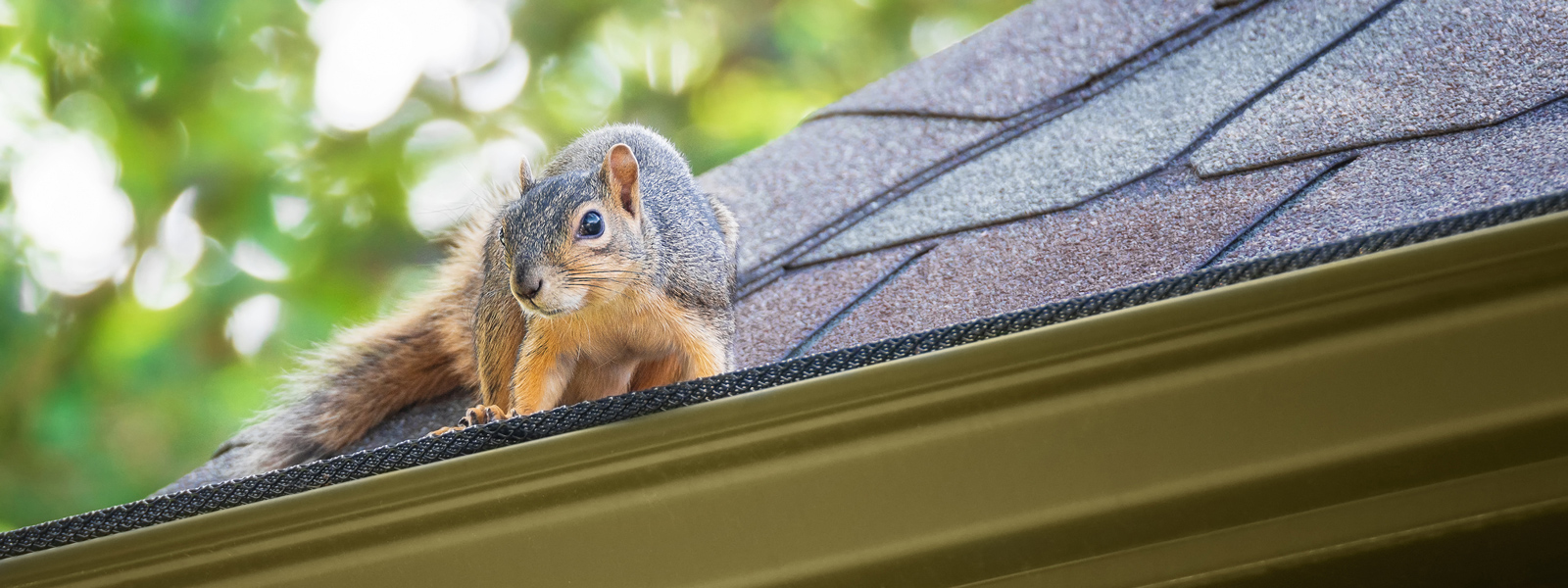Humane Rodent and Dead Animal Removal: Local Experts Near You.

Humane Rodent and Dead Animal Removal: Local Experts Near You.
Quickly and discreetly remove rodents and dead animals from your home. Find a trusted professional near you.
If you are having a problem with a wild animal, please select your city/town in South-carolina from the map or list above. This South-carolina animal control directory lists the phone numbers of professional wildlife removal experts throughout South-carolina. These nuisance wildlife control operators deal with conflicts between people and wildlife such as squirrels living in an attic, or raccoons digging through the trash can. Call the licensed and insured professional listed here, and get the problem taken care of once and for all.
There are many South-carolina pest control companies, but most of them treat for insect problems, and have little experience dealing with wild animals. Our specially trained technicians have the specific knowledge and equipment necessary for South-carolina wildlife management. We are not extermination companies, we are professional South-carolina trappers of wildlife. We are humane, and do a complete job - everything from animal damage repairs to biohazard waste cleanup.
Our South-carolina animal control experts can handle many wildlife issues. Examples include South-carolina bat control and removal. It takes an experienced pro to safely and legally remove a colony of bats. The same goes for bird control, such as roosting pigeons. We know all the species of South-carolina snakes, and can safely remove them. We most commonly deal with animals in the home, such as rats or mice in the attic, or raccoons in the chimney. Select your area on the map above, and find a professional in your home town.
There are many South-carolina pest control companies, but most of them treat for insect problems, and have little experience dealing with wild animals. Our specially trained technicians have the specific knowledge and equipment necessary for South-carolina wildlife management. We are not extermination companies, we are professional South-carolina trappers of wildlife. We are humane, and do a complete job - everything from animal damage repairs to biohazard waste cleanup.
Our South-carolina animal control experts can handle many wildlife issues. Examples include South-carolina bat control and removal. It takes an experienced pro to safely and legally remove a colony of bats. The same goes for bird control, such as roosting pigeons. We know all the species of South-carolina snakes, and can safely remove them. We most commonly deal with animals in the home, such as rats or mice in the attic, or raccoons in the chimney. Select your area on the map above, and find a professional in your home town.
South Carolina info: The state mammal is the Grey Squirrel, whose latin name indicates that it comes from this area! It is actually the most common nuisance animal in SC.
If you need assistance with a domestic animal, such as a dog or a cat, you need to call your local South Carolina county animal services or SPCA for assistance. They can help you out with issues such as stray dogs, stray cats, dangerous animal complaints, pet adoption, bite reports, deceased pets, lost pets, and other issues. We have those numbers listed here for your convenience. If your city is not on our map, consult your local yellow pages or search for 'Animal Control' or 'SPCA' in your town.
If you need assistance with a domestic animal, such as a dog or a cat, you need to call your local South Carolina county animal services or SPCA for assistance. They can help you out with issues such as stray dogs, stray cats, dangerous animal complaints, pet adoption, bite reports, deceased pets, lost pets, and other issues. We have those numbers listed here for your convenience. If your city is not on our map, consult your local yellow pages or search for 'Animal Control' or 'SPCA' in your town.
Columbia City, SC
11°F to 82°F
11°F to 82°F
- Carolina mantis
- Spotted salamander
- Striped bass
- Loggerhead sea turtle
- Carolina wren, wild turkey
- White-tailed deer
South Carolina is a coastal state, and like most other coastal states, it has marine animals and terrestrial animals in a good variety. Much of the state is sandy. The coast plain, of course, is very flat and has the vegetation characteristic of coarse soil. Further inland, however, there is still sand; dunes from what used to be the coast millions of years ago rise up in the middle of the state. Forests and fields are ample, and a small corner of the region contains peaks of the Blue Ridge Mountains. South Carolina is typically hot and humid, but the winter can be quite cool and snow is occasionally seen.
South Carolina, with its fairly consistent temperatures, is home to many different reptiles, including the alligator. Other reptiles of note are the various venomous snakes in the region. South Carolina has copperhead snakes, cottonmouth snakes, coral snakes, and several species of rattlesnakes. These serpents are found in all regions of the state, though they are not as common on the coastal plain.
The state has many large predators including red wolves, grey wolves, and mountain lions. Coyotes are common statewide, and black bear are also widely distributed around South Carolina. With the large predators are also the common nuisance animals found around the country. South Carolina has rats, a huge selection of mouse species, armadillos, bats, skunks, raccoons, and squirrels.
Being a coastal state, South Carolina has marine animals like whales, dolphins, and porpoises, frequently spotted in the waters off the coast. Many of these animals are present year-round, and invite a slew of tourists to come and visit the sandy beaches. Tourists generally mean free food for seagulls, the most common nuisance animal for people on the shore.
At one time, many years ago, South Carolina had native bison. The large grazers have all but vanished from the East Coast, and most of the herds present are privately owned. Wild bison are still found in the Great Plains, but their numbers are significantly reduced from what they were hundreds of years ago. Elk were also once native to South Carolina. Deforestation and heavy influx of people drove the animals out of the state years ago. Now, white-tailed deer are the predominant grazing animal in the wild.
South Carolina, with its fairly consistent temperatures, is home to many different reptiles, including the alligator. Other reptiles of note are the various venomous snakes in the region. South Carolina has copperhead snakes, cottonmouth snakes, coral snakes, and several species of rattlesnakes. These serpents are found in all regions of the state, though they are not as common on the coastal plain.
The state has many large predators including red wolves, grey wolves, and mountain lions. Coyotes are common statewide, and black bear are also widely distributed around South Carolina. With the large predators are also the common nuisance animals found around the country. South Carolina has rats, a huge selection of mouse species, armadillos, bats, skunks, raccoons, and squirrels.
Being a coastal state, South Carolina has marine animals like whales, dolphins, and porpoises, frequently spotted in the waters off the coast. Many of these animals are present year-round, and invite a slew of tourists to come and visit the sandy beaches. Tourists generally mean free food for seagulls, the most common nuisance animal for people on the shore.
At one time, many years ago, South Carolina had native bison. The large grazers have all but vanished from the East Coast, and most of the herds present are privately owned. Wild bison are still found in the Great Plains, but their numbers are significantly reduced from what they were hundreds of years ago. Elk were also once native to South Carolina. Deforestation and heavy influx of people drove the animals out of the state years ago. Now, white-tailed deer are the predominant grazing animal in the wild.
South-carolina Wildlife Invading Homes: A Growing Concern
South-carolina's landscape and climate make it an ideal habitat for a wide variety of wildlife. Unfortunately, this can also lead to problems for homeowners as animals seek shelter and food in residential areas.
As the human population continues to expand, encounters with wildlife are becoming increasingly common across the United States. One of the most frustrating and sometimes dangerous issues for homeowners is when animals find their way inside.
One of the most common culprits is the raccoon. These intelligent and adaptable creatures are skilled at finding ways into homes through small openings in roofs, chimneys, or vents. Once inside, they can cause damage to insulation, wiring, and furniture.
The specific types of wildlife that may invade homes vary depending on the region, but some common culprits in South-carolina include:
To prevent wildlife from entering your home, consider the following:
If you have a wildlife infestation, it's important to contact a professional wildlife removal service. They have the experience and equipment to safely and humanely remove animals from your home and prevent future infestations.
By taking these steps, you can help protect your home and property from wildlife damage while also ensuring the safety of both humans and animals
As the human population continues to expand, encounters with wildlife are becoming increasingly common across the United States. One of the most frustrating and sometimes dangerous issues for homeowners is when animals find their way inside.
One of the most common culprits is the raccoon. These intelligent and adaptable creatures are skilled at finding ways into homes through small openings in roofs, chimneys, or vents. Once inside, they can cause damage to insulation, wiring, and furniture.
The specific types of wildlife that may invade homes vary depending on the region, but some common culprits in South-carolina include:
- Opossums: These nocturnal marsupials can squeeze through surprisingly small holes.
- Squirrels: Both ground squirrels and tree squirrels can cause damage to homes and gardens.
- Bats: Bats may enter through small gaps in the roof or walls, potentially carrying diseases.
- Rodents: Rats and mice can squeeze through tiny openings and contaminate food.
To prevent wildlife from entering your home, consider the following:
- Seal up entry points: Inspect your home for any gaps or cracks in the exterior and seal them with caulk or metal flashing.
- Install screens: Use screens on windows and vents to deter flying animals.
- Remove attractants: Keep garbage, pet food, and bird feeders away from your home to avoid attracting wildlife.
If you have a wildlife infestation, it's important to contact a professional wildlife removal service. They have the experience and equipment to safely and humanely remove animals from your home and prevent future infestations.
By taking these steps, you can help protect your home and property from wildlife damage while also ensuring the safety of both humans and animals
